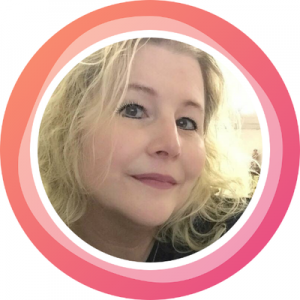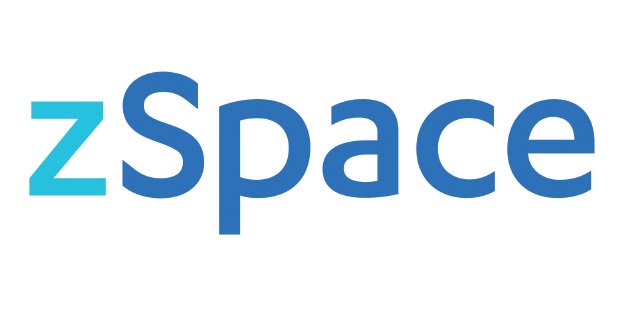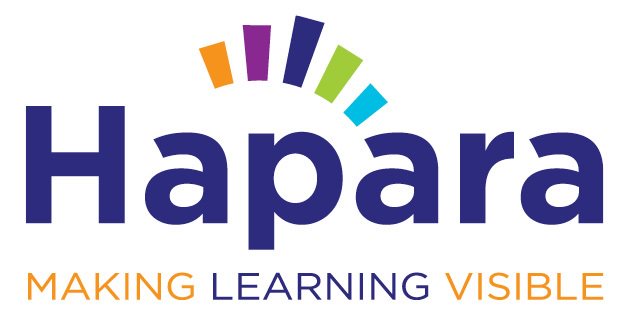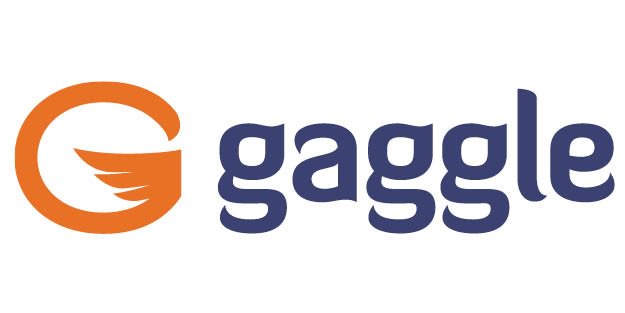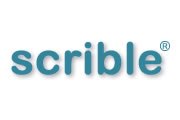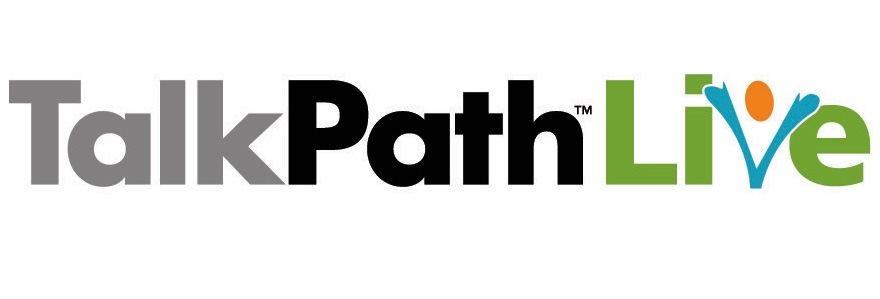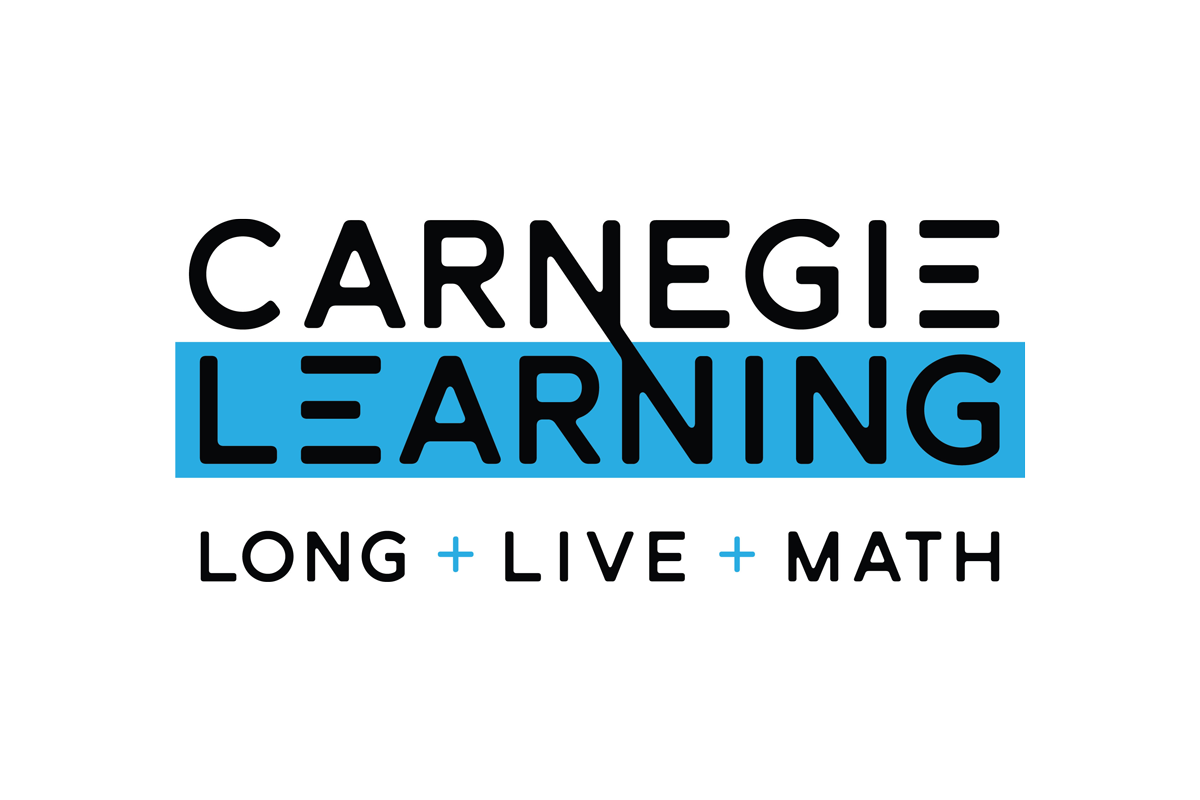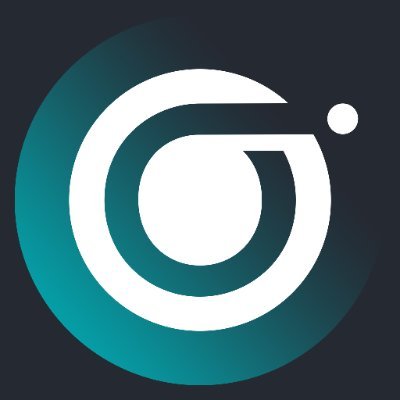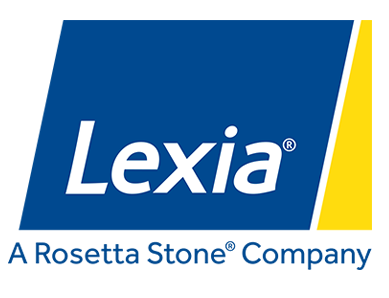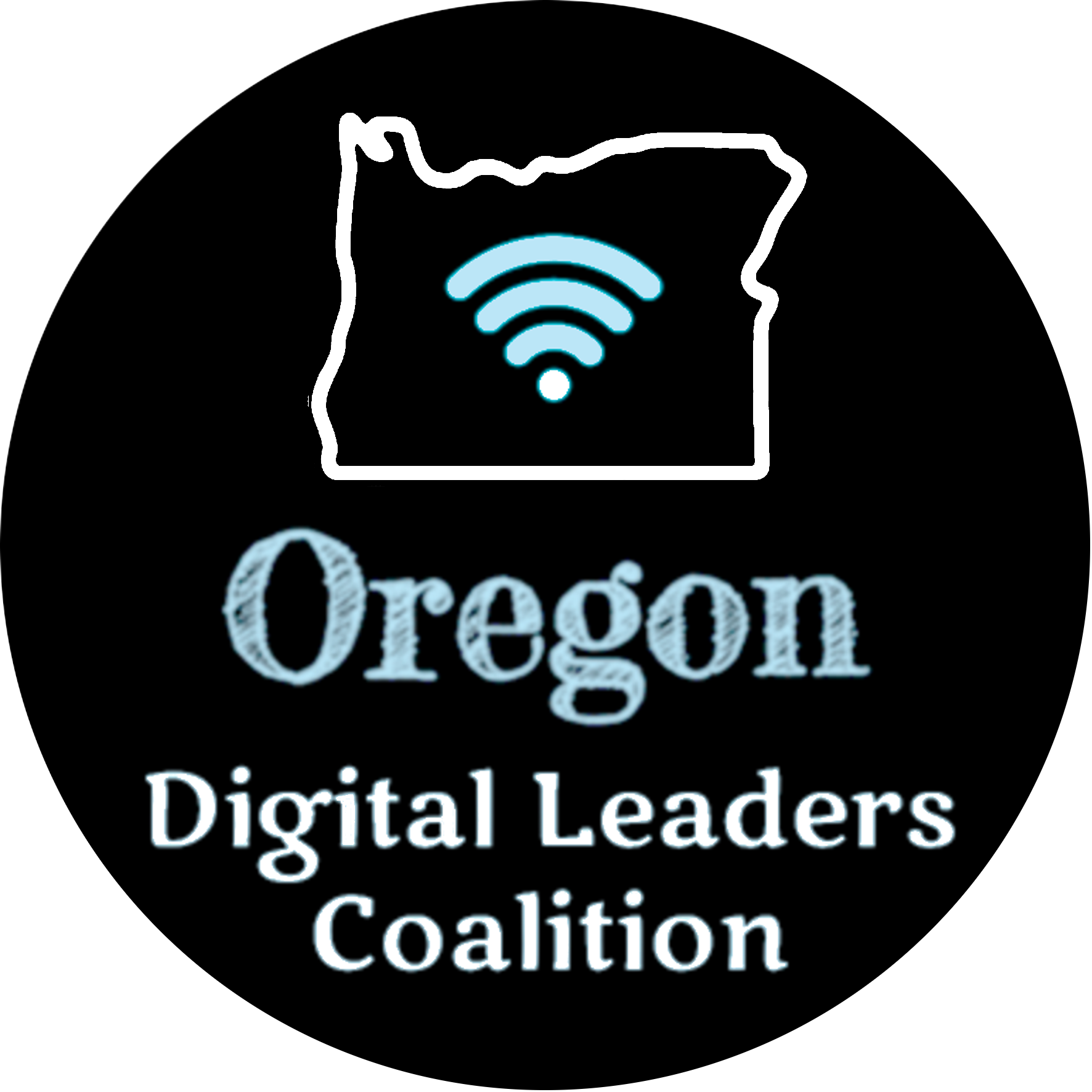EDTech “2020 Vision”
We are happy to announce that we are going fully virtual this year! Southern Oregon is bringing back our premier “Teacher to Teacher” instructional technology integration training event: the annual Southern Oregon EDTech Summit, now in its 9th year, on August 11th 2020. This event will feature teachers sharing their knowledge and skills for integrating technical tools for teaching and learning. Come join us for a variety of engaging topics presented by your fellow educators, just in time to support your fall classes.
This year we will be focusing on skills to support you in teaching distance- and hybrid-education models. Fellow educators from across Southern Oregon and around the state will provide practical ways to engage students in multiple methods for all age groups. They also will support administrators in visioning approaches to hybrid and distance learning.
We will kick off our 2020 event with Southern Oregon’s own Tisha Richmond offering an exciting and “Magical” keynote, which will be followed by four rounds of breakout sessions scheduled throughout the day.
Late registration is closing at 1:00 PM on Friday the 7th!
Participants who register by 1:00 PM on August 5th will be invited to a NEPRIS Orientation Friday August 7th at 10:00
If you did not receive an invitation use this link.
When
August 11th 8:00-4:00
Location
Virtual
Fee
Free for these Oregon STEM Hubs and ESD’s. (click the links to see districts)
Umpqua Valley STEAM HUB
South Metro-Salem STEAM HUB
Columbia Gorge STEAM HUB
Central Oregon STEM HUB
Southern Oregon CC4A/STEAM
Oregon Coast STEM
Clackamas ESD
Willamette ESD
For others contact SOESD
Contact Information
Nancy Hayes at 541-776-8564 or Aaron Cooke at aaron_cooke@soesd.k12.or.us 541-261-0107
PDUs
6
KEYNOTE SPEAKER
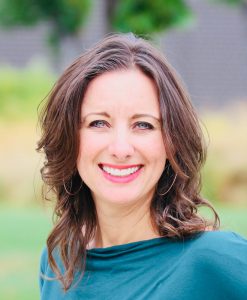
Author and Tech Integration Specialist for Medford School District
SESSIONS: Make Learning Magical & Game On
WEBSITE: www.tisharichmond.com
Tisha is an innovative district Tech Integration Specialist, speaker, and author from Southern Oregon. She has taught Family and Consumer Science for 25 years and has served in various leadership roles in her school and district as well as on Oregon regional and state edtech cadres. Tisha is the author of the book Make Learning MAGICAL, which unlocks seven keys to transform teaching and create unforgettable experiences in the classroom. She speaks nationally on a variety of topics related to teaching and learning in all content and grade levels, Family and Consumer Science being her specialty. In 2018, she was a recipient of Medford School District’s Golden Pear Educator Secondary Teacher Award and a first place winner of the Henry Ford Innovation Nation Educator Award. Tisha is passionate about infusing joy, passion, play, and gamified strategies to immerse and empower our 21st century learners and make learning a MAGICAL experience for all! She connects globally with educators around the world continuously reaching beyond her comfort zone to grow and help transform the educational landscape so all learners can thrive.
BREAKOUT SESSION 1
- Hybrid and Distance Learning in the Elementary Classroom with Seesaw: The Learning Journal
- Maintaining School/Student relationships during COVID-19
- Canva: Teaching Students and Educators Creative Bravery
- Power Up Thinking Routines Using Technology Tools
- Supporting Learning from Home for Students with Autism and Other Developmental Disabilities
- Twig Science Goes Virtual: One Click Distance Learning!
- Educating Students and Parents about Online Safety and Privacy
- Oregon Connections 1.0
- Go Rogue: Creating Chaos to Re-energize Your Classroom!
- School Psychology Best Practices - Open Forum Discussion
As our world is ever-changing, we need to be prepared for anything these days! This fall we will walk into a very different world of teaching with some of us in the classroom, some fully distance learning, and some of us somewhere in between. In this session we will dive into the world of Seesaw: The Learning Journal to find out how this versatile and robust app can help us with any type of teaching and learning that we face this year. Participants will discover ways to connect with families and students at home in an easy and straight forward manner. Participants will also learn how to utilize the creation and communication tools to keep learning going whether their students are distance learning or in the classroom with them. If we have time, we will also explore some app smashing with apps like Apple Clips, iMovie, Book Creator and more! Participants will walk away with a simple and easy workflow app to use in the classroom, as well as, a valuable way to share student work with parents at home.
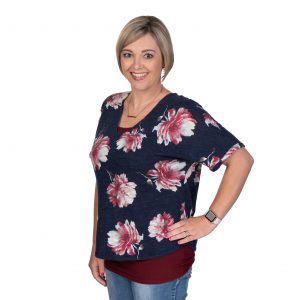
Instructor: Heather Marrs
Heather Marrs is an Instructional Coach at Eagle Rock Elementary in Eagle Point, Oregon. She is an Apple Distinguished Educator, Seesaw Ambassador, Book Creator Ambassador and FlipGrid Ambassador. Heather is passionate about integrating technology in education to amplify student voice, increase communication, and engage students. She has been a presenter at ISTE 2019, NCCE 2016-19, the Southern Oregon EdTech Summit 2015-18, and IntegratED 2017-18. Heather is the founder and main moderator of the Oregon EdChat which can be found at #OrEdChat on Twitter. She enjoys being a connected educator and providing professional development both locally and regionally. Outside of teaching, she is a wife and mother of two amazing kiddos.
Educators know the importance of maintaining solid relationships with students. That is where learning starts. But how do you maintain, and even foster those relationships from a distance? Morgan will share methods and ideas on how to do just that.
 Speaker: Morgan Cottle
Speaker: Morgan Cottle
Morgan has over 30 years experience with public schools in Southern Oregon. He spent 28 years at the elementary classroom followed by district and region leadership in technology integration. Currently he is the principal of South Valley Academy, a new grades 3-12 public school in Rogue River. SVA is a blended model, brick-and-mortar and off campus school focusing on personalized learning. Students are on flexible schedules and proficiency based.
Not sure where or how to get started with graphic design? Then this is the session for you. Learn how to use Canva to break down those barriers that are keeping you and your students from showcasing your creative side with this super easy to use online platform. In this session you will learn the basics of using Canva, some useful tips and tricks, how you can use it to level up your website, email, presentations and more. As well as how it can be used in the classroom with students. Depending on the needs of the session attendees we will choose a “make and take” to kick off our creative bravery. Some options for our “make and take” could be an email signature, Google header for forms or websites, buttons for Canvas, and more. With over 60k in templates available the possibilities are limitless. Now let’s go Create!
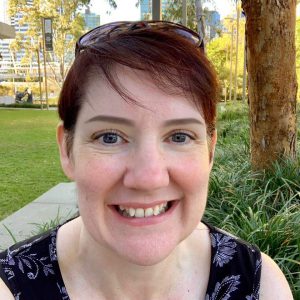 Instructor: LeVonda Vickery
Instructor: LeVonda Vickery
LeVonda teaches 7th and 8th grade students digital fabrication, robotics, and computer skills at McLoughlin Middle School in Medford, Oregon. She has been a classroom teacher for 6 years and brings over 20 years of real-world experience to the classroom. She’s a returning member of the Educational Service Districts EdTech Integration team that sponsors the EdTech Summit each year in Southern Oregon. She received a grant to begin a SkillsUSA chapter at McLoughlin during the 2017-18 school year. She has taken students to the SkillsUSA state conference to compete in team engineering, cake decorating, pin design, t-shirt design, extemporaneous speech, urban search and rescue robotics and mobile robotics during the past 3 years where students have earned 16 gold, 11 silver, and 10 bronze medals. As well as taking her gold medalists to national competition in Kentucky over the past two years where in 2018-19 they earned 3rd and 10th place at competition. She’s a lifelong learner and passionate about graphic design, digital fabrication, technology and loves playing video games. She takes on her Geek Girl attitude with pride and hopes to get other girls passionate about computer science and other male predominant roles in the CTE industry.
Project Zero’s Thinking Routines promote students’ thinking by taking what students have read or learned about and have them synthesize their thoughts to make their thinking visible. Haven’t heard of them yet? Come to this session and learn all about them. Discover when and how using technology tools, such as GSuite, Padlet, Pear Deck and Flipgrid can amplify the use of these routines. Empower your learners to new levels as you learn to combine thinking routines and technology tools.
Instructor: Debbie Tannenbaum 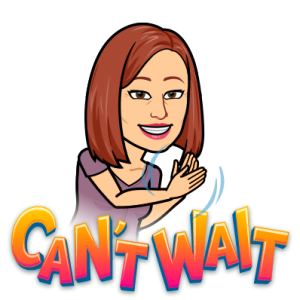
Debbie Tannenbaum is an Elementary School Technology Specialist in Fairfax County, VA. An educator with over twenty years of experience, Mrs. Tannenbaum is completing her second year in this role, where she supports both staff and students to integrate technology tools into instruction through both co teaching sessions and weekly technology classes. Mrs. Tannenbaum is also an avid blogger and shares her thoughts and reflections on her website: Techy Notes. You can also find her on Twitter and Instagram at @TannenbaumTech.
The unprecedented school closures, due to COVID-19, have highlighted the challenges educators face to provide effective educational services for students with significant learning needs. In this session, we will discuss how to support synchronous remote learning for students with autism and other developmental disabilities through evidence-based practices. We will also discuss ways to support families in navigating home routines with free visual supports and resources.
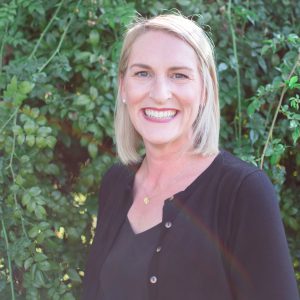 Presenter: Darby Lasley
Presenter: Darby Lasley
Darby works with STAR Autism Support to provide workshops and hands-on consultation to classrooms throughout the country and in the state of Oregon with classrooms who have been trained to serve as model training sites (Oregon Regional Program Autism Training Sites/OrPATS). Darby brings classroom experience as an elementary life skills teacher who helped create the first elementary ORPATS training site in Lane County. For four years Darby served as a Program Supervisor overseeing the elementary life skills program and the regional autism program for Lane Education Service District. Darby also served as a senior instructor for Portland State University providing workshops and hands-on training to classrooms around the state of Oregon. Darby holds a master’s degree in special education, a bachelor’s degree in early childhood development, and a current Oregon Administrator License and Oregon Teaching License with endorsements in autism, special education, and early childhood education.
Distance learning can be hard, but with Twig Science your students can still have fun and engaging lessons while away from the classroom!
You will get to see student examples of a hands on investigation that I did with my 1st graders during distance learning. I will show you how I used Twig Science during my time of distance learning. Wait till you see what Twig Science has done now! They created distance learning friendly lessons with a real credentialed teacher instructing your student along the way.
Twig Science has led the way as a NGSS based science curriculum. We were the only company to have zero edits or corrections during the adoption process.
Covid-19 has changed the way teachers interact with the curriculum. Twig Science immediately saw a new need and spent this time harrowing to convert every asset of our program to be taught virtually. We were committed to creating a solution that would still completely immerse students in phenomena based 3-dimensional learning. This STEAM workshop will take teachers through a real Twig Lesson taught by our virtual “Twig Coaches”, who are real elementary teachers that “teach” the teacher portions on the student interactive platform. Participants will work towards the Anchor Phenomenon. Participants will see a Twig Science Lab (Virtual Hands-On). TSDL also promotes Universal Access strategies for all learners; including EL, SPED, Challenge, and Cultural Connections.The takeaway is that participants will leave knowing that NGSS can still be done effectively through distance learning. Administrators will also appreciate that there is no teacher prep with TSDL. We will give away 5 subscriptions Twig Science Reporter just for attending the workshop.
Instructor: Christopher Borjas
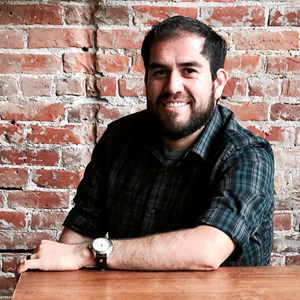 Christopher just finished his 9th year of teaching elementary students. He has his Masters in Curriculum Instruction and Design from Cal State Fullerton. This degree has helped him plan and develop engaging lessons for his students. As a consultant for Twig Science, he has been able to help teachers across California and the US, successfully implement NGSS into their classrooms. He is also on the Twig Science distance learning team, working on the first and fifth grade curriculum. Christopher, his wife, and two sons live in Southern California.
Christopher just finished his 9th year of teaching elementary students. He has his Masters in Curriculum Instruction and Design from Cal State Fullerton. This degree has helped him plan and develop engaging lessons for his students. As a consultant for Twig Science, he has been able to help teachers across California and the US, successfully implement NGSS into their classrooms. He is also on the Twig Science distance learning team, working on the first and fifth grade curriculum. Christopher, his wife, and two sons live in Southern California.
This session introduces the topic of student online safety and privacy and offers best practices for managing the risks to students. We will explore specific tools and methods for assessing the privacy and security of products commonly used in the classroom. Participants will explore Common Sense Education lessons and resources on this topic.
Instructor: Michelle Green 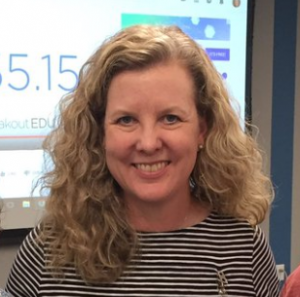
On and off the job, Michelle is a Champion of Digital Learners and Leaders. She serves as the technology supervisor for Eagle Point School District. Being a collaboration junkie, Michelle seeks out PLNs to expand her knowledge. This results in her being a leader for the OR EdTech Cadre, a Google Certified Innovator, a Common Sense Ambassador, and a Certified Educational Technology Leader through CoSN. Michelle’s career started in the classroom and progressed to serving at the state level, but she’s happy to be in the valley and supporting learners close to home.
Oregon Connections 1.0 will introduce participants to the Oregon Connections Platform by providing an overview of the website, supporting participants in establishing a profile, walking through the process of requesting a presentation and how to sign up for various kinds of industry sessions. Tools to support teachers in integrating the role of industry partners in classroom instruction will also be shared. Participants will work directly on the Oregon Connections site and will be supported in planning a calendar for use during the coming school year. Representatives from Nepris, developer of Oregon Connections, will also be available to provide support.
Instructor: Lacey Ferguson 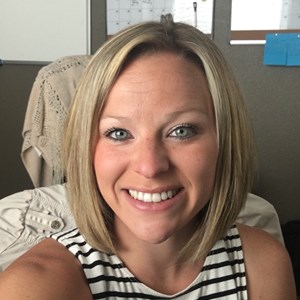
Lacey Ferguson is a past elementary and science teacher working now as an independent consultant. She has been the program coordinator for Oregon Connections implementation for the Umpqua Valley STEAM Hub for 5 years. Oregon Connections connects education with business/industry partners through virtual field trips and presentations as well as connecting students to career experts as mentors.
Finding ways to reach all students and to effectively implement new strategies and digital tools into the classroom can be overwhelming. The purpose for this session is that I want to share how some of the changes I have made in my classroom structure, instruction as well as the different digital tools that I have integrated into my classroom, have led to great benefits for my students as well as to my own practice as a teacher. Working with the students, asking for their feedback, involving them in the decisions of which tools to use and the strategies that help them to learn, has led to increased motivation and student engagement. Sometimes you just have to take some risks, try new tools and methods, to engage students in learning. I got out of the way, which was a bit uncomfortable at first, after years of standing in the front and controlling all activities. Now, I leave it up to students as well, giving me more time to move around the room, wherever they are, and work with them more. This session will share ideas for creating a flexible, student-driven learning environment, where students build their confidence, relationships and collaborate on a learning adventure. Attendees will have at least eight strategies for creating new learning experiences for students. There will be opportunities to create and explore some of the tools and strategies. Attendees will be able to get started with any of these methods without having to invest a lot of time.
Instructor: Rachelle Dene Poth
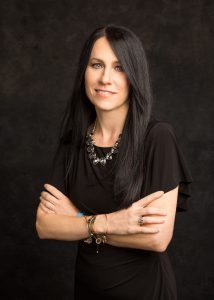 Rachelle Dene Poth is an edtech consultant, presenter, attorney, author, and teacher. Rachelle teaches Spanish and STEAM: What’s nExT in Emerging Technology at Riverview Junior Senior High School in Oakmont, PA. Rachelle has a Juris Doctor degree from Duquesne University School of Law and a Master’s in Instructional Technology. She is a Consultant and Speaker, owner of ThriveinEDU LLC Consulting. She serves as the President of the ISTE Teacher Education Network and serves on the Leadership team of the Mobile Learning Network. At ISTE19, she received the Making IT Happen Award and a Presidential Gold Award for volunteer service to education. Rachelle is the author of four books, ‘In Other Words: Quotes That Push Our Thinking,” “Unconventional Ways to Thrive in EDU” (EduMatch) and “The Future is Now: Looking Back to Move Ahead,” Rachelle Dene’s latest book is with ISTE “Chart A New Course: A Guide to Teaching Essential Skills for Tomorrow’s World.” Rachelle is a blogger for Getting Smart, Defined Learning, District Administration, NEO LMS, and the STEM Informer with Newsweek.
Rachelle Dene Poth is an edtech consultant, presenter, attorney, author, and teacher. Rachelle teaches Spanish and STEAM: What’s nExT in Emerging Technology at Riverview Junior Senior High School in Oakmont, PA. Rachelle has a Juris Doctor degree from Duquesne University School of Law and a Master’s in Instructional Technology. She is a Consultant and Speaker, owner of ThriveinEDU LLC Consulting. She serves as the President of the ISTE Teacher Education Network and serves on the Leadership team of the Mobile Learning Network. At ISTE19, she received the Making IT Happen Award and a Presidential Gold Award for volunteer service to education. Rachelle is the author of four books, ‘In Other Words: Quotes That Push Our Thinking,” “Unconventional Ways to Thrive in EDU” (EduMatch) and “The Future is Now: Looking Back to Move Ahead,” Rachelle Dene’s latest book is with ISTE “Chart A New Course: A Guide to Teaching Essential Skills for Tomorrow’s World.” Rachelle is a blogger for Getting Smart, Defined Learning, District Administration, NEO LMS, and the STEM Informer with Newsweek.
This open forum discussion is intended to allow school psychologists to exchange thoughts and information about current best practices in the field, including utilization of virtual technology, ODE guidelines for conducting assessments, the newly released 2020 NASP Professional Standards, revisions in ODE eligibility requirements (i.e. TBI) and other current practices and trends that impact school psychology practices.
Instructor: Kim Hosford
Instructor: Jeffrey Fry, Ph.D.
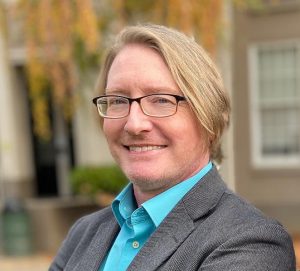 Dr. Fry is a licensed school psychologist and an Oregon Board of Psychology candidate for licensed psychologist. He has been delivering comprehensive psychological and educational services in schools and private practice for 24 years. Dr. Fry is a Nationally Certified School Psychologist with advanced training in neurodevelopmental disorders and school neuropsychology. He has provided numerous workshops for school professionals and parents on mental health-related topics and evaluation practices. Dr. Fry has had the privilege of participating on various state and district-level committees across the nation helping to inform best professional practices and meaningful services to children and families. He is a strong advocate for individuals with disabilities and proponent of comprehensive behavioral health services for children and families.
Dr. Fry is a licensed school psychologist and an Oregon Board of Psychology candidate for licensed psychologist. He has been delivering comprehensive psychological and educational services in schools and private practice for 24 years. Dr. Fry is a Nationally Certified School Psychologist with advanced training in neurodevelopmental disorders and school neuropsychology. He has provided numerous workshops for school professionals and parents on mental health-related topics and evaluation practices. Dr. Fry has had the privilege of participating on various state and district-level committees across the nation helping to inform best professional practices and meaningful services to children and families. He is a strong advocate for individuals with disabilities and proponent of comprehensive behavioral health services for children and families.
BREAKOUT SESSION 2
- Oregon Open Learning OER Workshop
- Digital Fire Stories from SOFEE
- Inquiry-based STEM Projects with ScienceWorks: Facilitation and Expansion Tips
- Blended Schooling: Brick and Mortar/Off Campus Learning.
- Synchronous SDI Instruction in the Virtual School Environment
- Equity and Productive Engagement in the Distance High School Math Class
- CTE & Esports: Gaming Your Way to Work
- The Maker Mindset & Remote Project-Based Learning with 3D Printing
- A Welcoming Virtual Classroom
- Theatre Arts in an Online World through StageAgent
We are very excited to launch OOL across the state! As a #GoOpen state, Oregon’s investment in open educational resources signals our commitment to equity, empowerment, and efficacy. Participants will engage with the “why” and “how” of open education, as well as learn to recognize open licensing and find/develop resources.
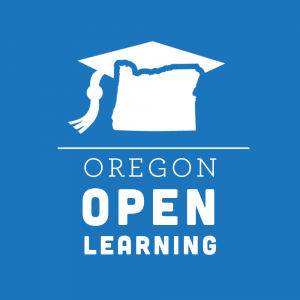 Instructor: Oregon Open Learning Team
Instructor: Oregon Open Learning Team
Andy Byerley, Vanessa Clark, Renee House, Susan Payne, Tina Roberts, and Jamie Rumage
The Oregon Open Learning Team represents specialists from across the Office of Teaching Learning and Assessment at ODE who joined forces at the outset of Distance Learning for All to support the Oregon education community during emergency school closure and into the 2020-21 school year.
The Southern Oregon Fire Ecology Education (SOFEE) project has developed K-12 lessons to support teachers with explaining the role of fire in southern Oregon. This presentation will demonstrate the digital resources available to teachers. It will focus on the fire stories from the Fireworks curriculum.
Instructor: Tara Laidlaw 
In twelve years of working within and beyond the classroom, Tara has been a front-line facilitator, a program director, an instructional designer, and a teacher trainer. Now, as an education program manager with Southern Oregon Land Conservancy, her professional focus is helping place-based programs support the Next Generation Science Standards and inspire environmental literacy and stewardship in learners from all walks of life.
This workshop will model an inquiry-based STEM project that can be the basis of several expansion topics. The base activity, designing and making a stick loom and weaving natural materials, employs technology, engineering, and math skills in an engaging way that is accessible to learners of all backgrounds. Participants will select natural materials and will investigate them, seeking patterns, which will launch a brief investigation into variation and patterns in plants. They will then sort and categorize their materials, and will design and construct a stick loom. Using their materials, participants will weave a natural mat. Each mat will be unique, according to the materials selected and the individual maker’s design. Material selection affords an opportunity for learners to begin intentionally thinking like a scientist, as they collect and categorize diverse natural materials, then sort and group them according to pattern. This part of the investigation can be expanded to go deeper into a variety of life science topics, depending on the age of the learners. The loom construction and the weaving design activity are an opportunity to discuss the engineering design cycle, and to iterate on and improve variations on the model. Learners may choose to make their loom according to a traditional loom design, or may iterate and devise a loom design suited to their needs. The weaving process itself is an opportunity for expansion into many variant math topics, including coding. The history of weaving from ancient origins to its role in the development of modern computers offers an opportunity to discuss the purpose of technology and its role in improving our lives, whether we are examining ancient or modern cultures. The weaving process is an introduction to coding, as weaving is an accessible example of binary code. A short reflection session offers participants the opportunity to discuss their design process and to reflect on any trouble shooting they employed, as well as new discoveries and connections they made and new areas they are curious about.
Instructor: Ash Friend 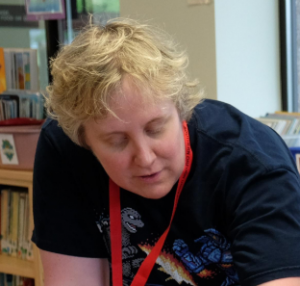
Ash Friend has been involved in informal education design and implementation for the last ten years. Ash’s background blends a degree in Creative Writing and literature as well as degrees and experience in lab science, allowing for organic cross curricular connections between STEM topics and humanities. Besides designing and implementing curriculum for ScienceWorks and SOU Youth Programs, Ash has designed and implemented programs for SOU Academy as well as assorted art centers, libraries, and schools. Currently, Ash is the K-12 Education manager at ScienceWorks, as well as a writer and illustrator.
Instructor: Leah Ruby
Leah Ruby is a dedicated museum professional with life long experience in the field of free-choice learning. Armed with a degree in fine arts and art history, she moved to San Francisco to build museum exhibits for the Cal Academy rogue fabrication shop, Academy Studios. She soon realized that while great exhibits “wow” people, fantastic educators and programs are what keep patrons coming back. To learn more, she studied Museum Education at John F. Kennedy University in the prestigious Museum Studies program, all the while consulting for museums and non-profits for their education and exhibit needs. Currently, she serves as the Museum Programs Manager at ScienceWorks.
Morgan will share how South Valley Academy in Rogue River has created a blended model of teaching and learning. SVA is a blended model of brick and mortar, and off campus learning. A flexible schedule combined with proficiency based approach allows for students to have a true personalized approach to learning. Morgan will work with educators to help them consider this approach for their own classroom or school.
 Speaker: Morgan Cottle
Speaker: Morgan Cottle
Morgan has over 30 years experience with public schools in Southern Oregon. He spent 28 years at the elementary classroom followed by district and region leadership in technology integration. Currently he is the principal of South Valley Academy, a new grades 3-12 public school in Rogue River. SVA is a blended model, brick-and-mortar and off campus school focusing on personalized learning. Students are on flexible schedules and proficiency based.
Online education has been in existence for students K-12 for over a decade, and the continued growth that has occurred has brought a diverse population of students with special needs to this engaging and individualized environment. Practices relating to instruction vary from school to school as different delivery models create distinctive challenges in the administration of services. IEPs in online schools mirror those in traditional brick and mortar environments relating to SDI, yet this setting creates unique demands relating to instructional delivery. Choices schools make can affect compliancy, provider decisions, and complex administrative functions. Usefulness to Practitioners This presentation is hosted by experienced online Special Education leaders from two Oregon statewide online schools. We will discuss our experience with best practices relating to Specially Designed Instruction (SDI), pitfalls to avoid, and lessons learned. The responsibilities of teachers, parents and students are shifting in the online word, and are posing interesting points of discussion for educators and administrators. Relevance to Learners, Families and/or educators of Diverse Groups As more and more school districts and states venture into the realm of online learning the challenges and uniqueness in delivery of special education services needs to addressed for this growing population of students. Online education is a viable option for students with special needs who have not found success in the traditional learning environments. Insuring these students have appropriate services has created new challenges for schools. The unique challenges of accountability, compliancy and meeting state standards for learning are just a few of the demands that need to be addressed. Participant Outcome Participants in the session will learn how online schools manage specially designed instruction.
Instructor: Jill Adams
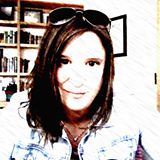 Jill Adams, Learning Specialist and Modifications Coordinator at Oregon Charter Academy, teaches specially designed instruction at the secondary level in the areas of transition, reading, and written language. Jill has taught online for five years after teaching life skills and resource special education in the Hillsboro and Bend La Pine School Districts at the elementary and middle school levels. She holds a degree in English from Portland State University, and received her Masters of Arts in Teaching Special Education from Pacific University. She is a Google for Education Certified Educator Level 2. She resides in Central Oregon.
Jill Adams, Learning Specialist and Modifications Coordinator at Oregon Charter Academy, teaches specially designed instruction at the secondary level in the areas of transition, reading, and written language. Jill has taught online for five years after teaching life skills and resource special education in the Hillsboro and Bend La Pine School Districts at the elementary and middle school levels. She holds a degree in English from Portland State University, and received her Masters of Arts in Teaching Special Education from Pacific University. She is a Google for Education Certified Educator Level 2. She resides in Central Oregon.
Instructor: Natalie Conway
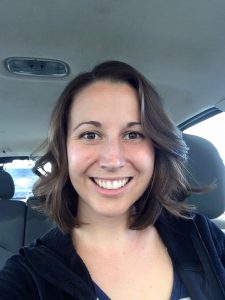 Natalie Conway M.Ed. started her career teaching in 2005 in Massachusetts. She moved to Oregon in 2013. Natalie has worked as a special education teacher, general education teacher and mentor teacher. She holds an M.Ed. in special education and will earn her Reading Endorsement in the winter of 2020. In addition to being a public school educator, Natalie is an instructor for The Innovative Northwest Teacher, bringing high quality and relevant PD to teachers in the Pacific Northwest. She also is an instructional coach for SYS Education LLC, where she trains teachers in how to create authentic and engaging online content for students K-12.
Natalie Conway M.Ed. started her career teaching in 2005 in Massachusetts. She moved to Oregon in 2013. Natalie has worked as a special education teacher, general education teacher and mentor teacher. She holds an M.Ed. in special education and will earn her Reading Endorsement in the winter of 2020. In addition to being a public school educator, Natalie is an instructor for The Innovative Northwest Teacher, bringing high quality and relevant PD to teachers in the Pacific Northwest. She also is an instructional coach for SYS Education LLC, where she trains teachers in how to create authentic and engaging online content for students K-12.
During our distance learning time it was quite a challenge to keep students engaged in mathematical thinking while, at the same time, keeping equity among all my students. Two tools that I used to help combat this challenge was rough draft thinking and critiquing of other students’ work. In this breakout session I will have the participants play the part of the student to see how each method can be used during an online class session as well as what can be sent home in a packet in order to encourage the same high level of mathematical thinking.
Instructor: Debbie Knapp
I have taught math classes for 32 years. The majority of my time has been at the high school level though I have taught classes from 5th grade through Community College level.
The unprecedented school closures, due to COVID-19, have highlighted the challenges educators face to provide effective educational services for students with significant learning needs. These students are most vulnerable to regression and susceptible to longer periods of recoupment when school is not in session. Availability of remote learning opportunities for our most at-risk students can reduce the likelihood of significant regression. Synchronous remote learning, or real-time teaching from a trained educator, meets key provisions in federal legislation (IDEA). Further, synchronous remote learning is a critical component for students to progress beyond maintenance of previously learned skills, toward the advancement of new skills. This presentation provides a comprehensive look at synchronous remote learning strategies found to be successful for students with significant learning needs, including students who struggle with communication, attending, and behavioral expectations. Participants will learn about strategies and tools to use during virtual instruction in order to teach language, academics, play, and social skills for pre-K through post-secondary students. Examples of assessments, lesson plans, and progress monitoring systems for ensuring FAPE will be shared. We also focus on ways to support families in continuing their children’s education from home and explore free visual supports and resources to help navigate home routines.School/Student relationships during COVID-19
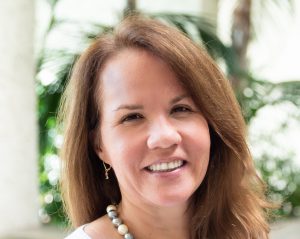 Presenter: Laylah Bulman
Presenter: Laylah Bulman
Laylah Bulman is a senior program officer for the Samueli Foundation, focusing on the North America Scholastic Esports Federation. She launched the Florida Scholastic Esports League, an affiliate of NASEF, to expand opportunities in STEM careers within esports. She began her career in Mexico City with the US Embassy, working on science and environmental policy and then moved into K12, working as a teacher and administrator, focusing on the effective implementation and sustainability of creative education technologies for classroom innovation. She was later the the enterprise director for LEGO Education and a LEAD STEM Fellow, responsible for LEGO Education’s STEM + CS efforts across Florida and the global STEM Learning Ecosystems. She speaks nationally on computer science, innovation, and early childhood learning. She is a Woodrow Wilson Fellow in Public and International Affairs and a graduate of The University of Virginia.
Presenter 2: Gerald Solomon
Gerald Solomon serves as the executive director for the Samueli Foundation, overseeing Samueli Philanthropy. A particular focus of the Samueli Foundation’s work in the education arena is to stimulate interest in preK-12 students in STEM coursework, research, and careers through integration of technology and innovative teaching methods. Today, much of this work is being carried out through deep involvement locally with the Orange County STEM Initiative and nationally and globally through the STEM Funders Network and the STEM Ecosystems Initiative. Mr. Solomon is the founder of the North America Scholastic Esports Federation, which leverages massive interest in esports to teach youth life and career skills.
In this virtual, hands-on, session, we’ll explore the Maker Mindset and how it can be adapted for Remote Project Based Learning opportunities.
Alli French and Ryan Wilcoxson from Talent Maker City, will walk us through the basics of the Maker Mindset and how it can be used to facilitate PBL centered in STEAM, specifically with 3D printing for beginners! You’ll learn how to incorporate 3D printing into your lessons – remotely or in person!
We’ll also take a close look at how you can access all of the tools in the STEM Hub’s Lending Library and how to work with your community partners on relevant PBL for your students.
Finally, we’ll explore how TMC is working with Southern Oregon student makers, engineers, manufacturers and medical professionals to prototype and produce much needed Personal Protective Equipment (PPE) and other medical supplies to combat the COVID19 Crisis locally.
Instructor: Alli French
Programs Director, Talent Maker City
 Alli is a long-time educator and maker. She has been teaching, mentoring and collaborating with the Ashland, Medford and Phoenix-Talent School Districts for over twenty years. As a maker, she is the proud owner of RefunktionedArt, where she makes new things out of old materials.
Alli is a long-time educator and maker. She has been teaching, mentoring and collaborating with the Ashland, Medford and Phoenix-Talent School Districts for over twenty years. As a maker, she is the proud owner of RefunktionedArt, where she makes new things out of old materials.
Ryan Wilcoxson – Executive Director, Talent Maker City
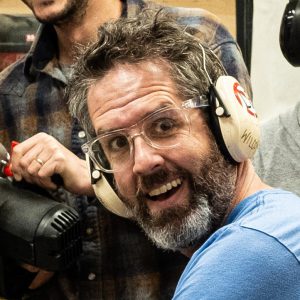 Ryan is a founding member of Talent Maker City and currently serves as Executive Director. In his past career, Ryan co-owned a San Francisco-based development studio where he specialized in media design, including video production, post-production, graphic and motion design.
Ryan is a founding member of Talent Maker City and currently serves as Executive Director. In his past career, Ryan co-owned a San Francisco-based development studio where he specialized in media design, including video production, post-production, graphic and motion design.
When Ryan moved to Southern Oregon in 2010, he took up woodworking which circuitously led him to changing careers and diving head first into establishing TMC with a group of volunteers dedicated to building a more connected, more prosperous community through hands-on creativity and STEAM-based learning.
Ryan has been a maker-of-things his entire life and when not behind a computer, he can most often be found at Talent Maker City playing with lasers, lathes, 3d-printers, table saws and more.
In this session, participants will FEEL the difference between online learning with and without simple practices that can make all the difference in the learning experience! The research is powerful regarding the importance of the classroom affective filter. There is overwhelming proof that English Learners succeed with language acquisition in the classroom by simply lowering the affective filter. I believe this affective filter applies to all students in their own, individual way. Simply put: Students must feel comfortable as a part of the group and know that they are accepted before they are willing to take chances and become vulnerable to participating and learning. We will look at simple practices that are usually (hopefully) taken for granted in the physical classroom, but rarely considered in the virtual classroom. These simple techniques include open dialogue, humor, getting to know each other personally, welcoming students at “the door,” and so many of these things that we do naturally in a physical classroom setting. When teachers were abruptly forced online, many were struggling to simply work the technology, so this is completely understandable. But now that we have had some time to reflect and regroup, we can prepare for a better virtual experience. During this time, participants will need some markers and paper and may even be asked to bring their pet for a brief cameo! Participants should enjoy this session and leave with a renewed excitement for technology in the classroom- however that may look. When teachers experience this session, it will show them- not TELL them- how it SHOULD feel to be a student and feel like you are a part of a learning community where you are important and you can enjoy learning. Attendees will participate in a icebreaker, stretch break, posting their responses, showing their paper/products (markers and paper needed), and participating in a few simple polls. They will experience a brief read aloud and share book titles that lend themselves to an inclusive classroom.
Instructor: Melissa Saphos 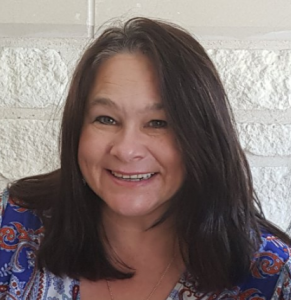
Melissa is the very definition of a life-long learner. Her core belief is that you must continue to learn, morph, and grow as you experience the journey that is life. Professionally, she has been a reporter, marketing director, and banker before formally entering the classroom. As an educator, she continues her journey and proudly hails the titles of teacher, instructional coach, researcher, trainer and advocate for teachers and students.
StageAgent is an online theatre resource for schools, communities, and professional artists. The website, in partnership with teachers and school districts, has been developed with an eye towards education. In our development, we emphasize flexibility and adaptability–the student-centric model helps teachers develop their students’ theatre literacy, independent research skills, and online responsibility.
Through investigation of the StageAgent platform, educators will be able to see how they can use the content to facilitate online learning in theatre arts. At its most basic level, StageAgent is relevant, industry-based research for college and career needs. Digging further into the platform, educators will see how StageAgent aligns with theatre arts standards and identify content, materials, and activities that can be utilized in an online learning environment to facilitate performing arts education.
While the content of the site is expansive, the most important element is the development of research skills in a “walled garden” of information. Students develop curiosity, knowledge of media, and creativity as they navigate an online world. In the session, educator participants will have the opportunity to put these skills into action and brainstorm how they in turn could adapt the StageAgent platform to be their own.
Presenter: Lisa Cotie
BREAKOUT SESSION 3
- The SpEdTalk with WISC and WIAT team
- Providing Access and Rigor for All Students during Online Learning.
- NGSS in a Virtual Realm
- Social Emotional Learning with Coded Stories
- In The Classroom: Return to School Following Concussion
- Geek Out with these Google Hacks
- Group Based Learning in Canvas
- Enhance your classroom with Google Forms & Sheets
An open and practical discussion with two virtual Special Educators regarding best practices for conducting IEP and Triennial team meetings remotely. Both presenters have experience in brick & Mortar settings as well as six years each in virtual SpEd academies. Bring your questions and concerns for WISC and WIAT team.
Instructor: Natalie Conway
 Natalie Conway M.Ed. started her career teaching in 2005 in Massachusetts. She moved to Oregon in 2013. Natalie has worked as a special education teacher, general education teacher and mentor teacher. She holds an M.Ed. in special education and will earn her Reading Endorsement in the winter of 2020. In addition to being a public school educator, Natalie is an instructor for The Innovative Northwest Teacher, bringing high quality and relevant PD to teachers in the Pacific Northwest. She also is an instructional coach for SYS Education LLC, where she trains teachers in how to create authentic and engaging online content for students K-12.
Natalie Conway M.Ed. started her career teaching in 2005 in Massachusetts. She moved to Oregon in 2013. Natalie has worked as a special education teacher, general education teacher and mentor teacher. She holds an M.Ed. in special education and will earn her Reading Endorsement in the winter of 2020. In addition to being a public school educator, Natalie is an instructor for The Innovative Northwest Teacher, bringing high quality and relevant PD to teachers in the Pacific Northwest. She also is an instructional coach for SYS Education LLC, where she trains teachers in how to create authentic and engaging online content for students K-12.
Instructor: Jill Adams
 Jill Adams, Learning Specialist and Modifications Coordinator at Oregon Charter Academy, teaches specially designed instruction at the secondary level in the areas of transition, reading, and written language. Jill has taught online for five years after teaching life skills and resource special education in the Hillsboro and Bend La Pine School Districts at the elementary and middle school levels. She holds a degree in English from Portland State University, and received her Masters of Arts in Teaching Special Education from Pacific University. She is a Google for Education Certified Educator Level 2. She resides in Central Oregon.
Jill Adams, Learning Specialist and Modifications Coordinator at Oregon Charter Academy, teaches specially designed instruction at the secondary level in the areas of transition, reading, and written language. Jill has taught online for five years after teaching life skills and resource special education in the Hillsboro and Bend La Pine School Districts at the elementary and middle school levels. She holds a degree in English from Portland State University, and received her Masters of Arts in Teaching Special Education from Pacific University. She is a Google for Education Certified Educator Level 2. She resides in Central Oregon.
The focus of this workshop is assuring all students have access to rich and rigorous tasks when learning in an online setting. Participants will engage in large and small group settings as they work through a task. Zoom breakout rooms and Google Slides will be used to promote discourse and share ideas. The session will be grounded in the Best Practices in Teaching Mathematics course developed by Teachers Development Group, however, the teaching and online learning aspects easily transfer to all curricular subjects.
Instructor: Vicki Sime
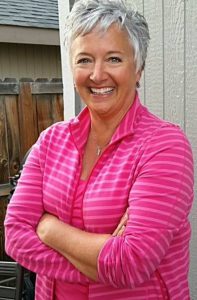 Vicki Sime has been an educator in Redmond, Oregon for many years and is currently a math professional development specialist for Teachers Development Group. She gets most excited when she engages teachers and leaders in productive math learning and then supports teachers to provide those opportunities for their students. Above all, she appreciates collaborating with others around quality math instruction that empowers all students to have the access and support they need.
Vicki Sime has been an educator in Redmond, Oregon for many years and is currently a math professional development specialist for Teachers Development Group. She gets most excited when she engages teachers and leaders in productive math learning and then supports teachers to provide those opportunities for their students. Above all, she appreciates collaborating with others around quality math instruction that empowers all students to have the access and support they need.
The session will consist of time to go over each of the eight Science and Engineering Practices (from NGSS). There will be three activities for each Practice: a model of how they can be used for instruction, a model of how they can be used for assessment, and a discussion of how each fits into the broader context of science and life. I am hoping participants can see that the Science Practices help to give students a new and interesting lens into the world around them that can go beyond just what they’re learning in school.
Instructor: Ben DeCarlow 
The majority of my teaching career has been spent in rural and semi-rural schools teaching science. Throughout that time, I have been able to help guide other teachers in the implementation in NGSS using the phenomena based model of learning. This model allows for students to take ownership of their learning of science and the world around them. While many teachers find this to be a difficult process to follow at first, many have found it to be very rewarding.
In the Classroom after Concussion is an online course that provides helpful information, practical strategies and resources for educators working with students with brain injury. The course is designed for: Classroom teachers, special educators, school psychologists, counselors, therapists, and administrators.
Attendees will learn how the course was developed, the research evidence of efficacy of the course and how to access the course free of charge.
Instructor: Melissa McCart 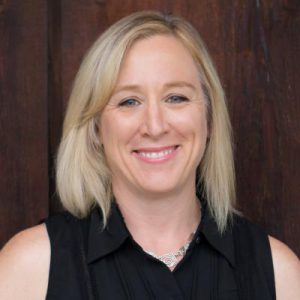
Melissa McCart, Ed.D, is an international speaker and author on return to school following brain injury. She is currently the director of the Oregon TBI Teams and works in the field of TBI research at the Center on Brain Injury Research and Training (CBIRT) at the University of Oregon.
Are you ready to use Google Tools for more than just presentations and word processing? In this session you will learn dozens of helpful tips and tricks to get you hacking Google like a pro. There are a ton of Google tools you may or may not already know about to increase productivity and help engage students. Here’s a quick sneak peak of what’s in store: 1. Learn how to use Google Calendar for lesson planning, appointment scheduling and more. 2. Shortcuts and extensions for Chrome to increase your productivity. 3. Clean up and organize your Google Drive like a BOSS! 4. Use Google Sites to create a beautiful website, student portfolios, and more. 5. Some less commonly known Google tools you can use both in the actual classroom and for online learning. 6. Not to mention lots of hacks for Google Docs, Slides, and Sheets to help you and students be ready for Fall.
Instructor: LeVonda Vickery
 LeVonda teaches 7th and 8th grade students digital fabrication, robotics, and computer skills at McLoughlin Middle School in Medford, Oregon. She has been a classroom teacher for 6 years and brings over 20 years of real-world experience to the classroom. She’s a returning member of the Educational Service Districts EdTech Integration team that sponsors the EdTech Summit each year in Southern Oregon. She received a grant to begin a SkillsUSA chapter at McLoughlin during the 2017-18 school year. She has taken students to the SkillsUSA state conference to compete in team engineering, cake decorating, pin design, t-shirt design, extemporaneous speech, urban search and rescue robotics and mobile robotics during the past 3 years where students have earned 16 gold, 11 silver, and 10 bronze medals. As well as taking her gold medalists to national competition in Kentucky over the past two years where in 2018-19 they earned 3rd and 10th place at competition. She’s a lifelong learner and passionate about graphic design, digital fabrication, technology and loves playing video games. She takes on her Geek Girl attitude with pride and hopes to get other girls passionate about computer science and other male predominant roles in the CTE industry.
LeVonda teaches 7th and 8th grade students digital fabrication, robotics, and computer skills at McLoughlin Middle School in Medford, Oregon. She has been a classroom teacher for 6 years and brings over 20 years of real-world experience to the classroom. She’s a returning member of the Educational Service Districts EdTech Integration team that sponsors the EdTech Summit each year in Southern Oregon. She received a grant to begin a SkillsUSA chapter at McLoughlin during the 2017-18 school year. She has taken students to the SkillsUSA state conference to compete in team engineering, cake decorating, pin design, t-shirt design, extemporaneous speech, urban search and rescue robotics and mobile robotics during the past 3 years where students have earned 16 gold, 11 silver, and 10 bronze medals. As well as taking her gold medalists to national competition in Kentucky over the past two years where in 2018-19 they earned 3rd and 10th place at competition. She’s a lifelong learner and passionate about graphic design, digital fabrication, technology and loves playing video games. She takes on her Geek Girl attitude with pride and hopes to get other girls passionate about computer science and other male predominant roles in the CTE industry.
Canvas is a new learning tool for instructors potentially being released. This presentation will outline different ways educators can use canvas in collaborative based learning environments. I will show instructors how to create learning groups, post discussion boards for an entire class as well as specific groups, how to format a canvas page for ease of student access, how to create a rubric in canvas and use the rubric for grading, as well as assigning due dates for instructors.
Speaker: Cecilia Lepa 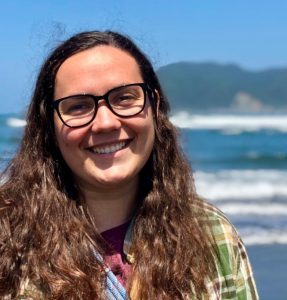
Teach educators how to build effective group based learning in canvas. Show instructors different tools and tricks to make the canvas experience better for students and educators.
Learn how to use Google Forms and Sheets and how they can be useful tools for managing group work projects, sign-ups, assessments, quizzes, and pooling information. The session focuses on serving teachers who will have limited face-to-face instruction periods. You will learn how to create quizzes that can grade themselves, get organized feedback from students, save time with crunching numbers, and more. There will be time to create your own materials. Cheat sheets and notes will be provided.
Instructor: Dale Hammack
 The Wasco County 4-H STEM program annually reaches over 1,400 youth annually through: ·In-class enrichment, teacher collaborations, and professional development trainings at Wasco County school districts ·After school science and engineering programs such as FIRST, VEX and MATE Marine Environment robotics programs and coding clubs ·Summer day camps and residential camps featuring robotics, app making, virtual reality, and other emerging technologies ·Community events, such as the Engineering Nights, Children’s Fairs, Wasco County Fair, and family night presentations.
The Wasco County 4-H STEM program annually reaches over 1,400 youth annually through: ·In-class enrichment, teacher collaborations, and professional development trainings at Wasco County school districts ·After school science and engineering programs such as FIRST, VEX and MATE Marine Environment robotics programs and coding clubs ·Summer day camps and residential camps featuring robotics, app making, virtual reality, and other emerging technologies ·Community events, such as the Engineering Nights, Children’s Fairs, Wasco County Fair, and family night presentations.
Instructor: Lu Seapy
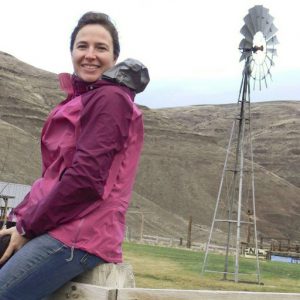 Lu Seapy has worked as a STEM and CTE instructor for over 20 years in Alaska, Europe and Oregon. Her current position involves providing technology integration support to local teachers and leading STEM based in-school and out-of-school classes. She coaches 4-10 VEX, FIRST and MATE robotics teams throughout the year and has been recognized as STEM Education Leader of the Year (2018, Gorge Technology Alliance), Program of the Year (2017, Oregon State University Education Association), and Excellence in Teamwork (2017, OSUEA). She says, “I love teaching students how to solve problems, gain confidence in themselves, and work together as a team. The most powerful impact in education we have is sharing the best of who we are.” She holds a Master of Arts and Teaching degree from University of Alaska Southeast and Reading Specialist Certification from Lewis and Clark College.
Lu Seapy has worked as a STEM and CTE instructor for over 20 years in Alaska, Europe and Oregon. Her current position involves providing technology integration support to local teachers and leading STEM based in-school and out-of-school classes. She coaches 4-10 VEX, FIRST and MATE robotics teams throughout the year and has been recognized as STEM Education Leader of the Year (2018, Gorge Technology Alliance), Program of the Year (2017, Oregon State University Education Association), and Excellence in Teamwork (2017, OSUEA). She says, “I love teaching students how to solve problems, gain confidence in themselves, and work together as a team. The most powerful impact in education we have is sharing the best of who we are.” She holds a Master of Arts and Teaching degree from University of Alaska Southeast and Reading Specialist Certification from Lewis and Clark College.
BREAKOUT SESSION 4
- Oregon Connections 2.0
- Beginning a Life in Canvas after Google Classroom
- Empowering Student Voice with Technology Tools
- Hybrid Teaching - Supplement limited face-to-face instruction with engaging digital learning tools.
- Virtual Social Skills Groups: Resources and Ideas for Distance Learning
- Gimkit Basics and Virtual Fieldtrips
- Magical Gamified Adventures for Anywhere Learning
- Creating Virtual Escape Rooms to Demonstrate Understanding
- Sketchnoting for Everyone
Oregon Connections 1.0 will introduce participants to the Oregon Connections Platform by providing an overview of the website, supporting participants in establishing a profile, walking through the process of requesting a presentation and how to sign up for various kinds of industry sessions. Tools to support teachers in integrating the role of industry partners in classroom instruction will also be shared. Participants will work directly on the Oregon Connections site and will be supported in planning a calendar for use during the coming school year. Representatives from Nepris, developer of Oregon Connections, will also be available to provide support.
Instructor: Lacey Ferguson 
Lacey Ferguson is a past elementary and science teacher working now as an independent consultant. She has been the program coordinator for Oregon Connections implementation for the Umpqua Valley STEAM Hub for 5 years. Oregon Connections connects education with business/industry partners through virtual field trips and presentations as well as connecting students to career experts as mentors.
Instructor: Krista Ikola
Kristina Ikola is Program Coordinator for the Umpqua Valley STEAM Hub supporting Oregon Connections and virtual learning opportunities for young children and their families. www.brightfuturesumpqua.com; https://oregonconnections.nepris.com/home/v4
Did your school just move to Canvas? Are you feeling homesick for Google Classroom at the thought of learning a new LMS? This session is going to help ease the transition! Join us to see how easy it is to integrate your Google Drive and create Google Classroom-like assignments.
Instructor: Michelle Green 
On and off the job, Michelle is a Champion of Digital Learners and Leaders. She serves as the technology supervisor for Eagle Point School District. Being a collaboration junkie, Michelle seeks out PLNs to expand her knowledge. This results in her being a leader for the OR EdTech Cadre, a Google Certified Innovator, a Common Sense Ambassador, and a Certified Educational Technology Leader through CoSN. Michelle’s career started in the classroom and progressed to serving at the state level, but she’s happy to be in the valley and supporting learners close to home.
Project Zero’s Thinking Routines promote students’ thinking by taking what students have read or learned about and have them synthesize their thoughts to make their thinking visible. Haven’t heard of them yet? Come to this session and learn all about them. Discover when and how using technology tools, such as GSuite, Padlet, Pear Deck and Flipgrid can amplify the use of these routines. Empower your learners to new levels as you learn to combine thinking routines and technology tools.
Presenter: Debbie Tannenbaum 
Debbie Tannenbaum is an Elementary School Technology Specialist in Fairfax County, VA. An educator with over twenty years of experience, Mrs. Tannenbaum is completing her second year in this role, where she supports both staff and students to integrate technology tools into instruction through both co teaching sessions and weekly technology classes. Mrs. Tannenbaum is also an avid blogger and shares her thoughts and reflections on her website: Techy Notes. You can also find her on Twitter and Instagram at @TannenbaumTech.
The Hybrid Teaching session aims to assist teachers with extending their use of Google Classroom to incorporate the use of HyperDocs and engage students in an active learning process. The session focuses upon serving teachers who will have limited face-to-face instruction periods (either through a video conferencing software or in person) with digital learning extensions. The session will explore using HyperDocs to allow students to work independently in a self-guided manner but still feel connected to teachers. The goal of the session is to connect students to learning in a comprehensive and purposeful manner. Teachers will have some time to incorporate digital extended learning tools into their existing classes.
Instructor: Lu Seapy
 Lu Seapy has worked as a STEM and CTE instructor for over 20 years in Alaska, Europe and Oregon. Her current position involves providing technology integration support to local teachers and leading STEM based in-school and out-of-school classes. She coaches 4-10 VEX, FIRST and MATE robotics teams throughout the year and has been recognized as STEM Education Leader of the Year (2018, Gorge Technology Alliance), Program of the Year (2017, Oregon State University Education Association), and Excellence in Teamwork (2017, OSUEA). She says, “I love teaching students how to solve problems, gain confidence in themselves, and work together as a team. The most powerful impact in education we have is sharing the best of who we are.” She holds a Master of Arts and Teaching degree from University of Alaska Southeast and Reading Specialist Certification from Lewis and Clark College.
Lu Seapy has worked as a STEM and CTE instructor for over 20 years in Alaska, Europe and Oregon. Her current position involves providing technology integration support to local teachers and leading STEM based in-school and out-of-school classes. She coaches 4-10 VEX, FIRST and MATE robotics teams throughout the year and has been recognized as STEM Education Leader of the Year (2018, Gorge Technology Alliance), Program of the Year (2017, Oregon State University Education Association), and Excellence in Teamwork (2017, OSUEA). She says, “I love teaching students how to solve problems, gain confidence in themselves, and work together as a team. The most powerful impact in education we have is sharing the best of who we are.” She holds a Master of Arts and Teaching degree from University of Alaska Southeast and Reading Specialist Certification from Lewis and Clark College.
Gimkit is a great way for students to either learn new information independently or in groups, to practice what they know until they achieve mastery and to compete in a low risk and fun way. Students LOVE Gimkit. I have developed a slide show that explains how to use Gimkit for beginners as well as for teachers who are looking to apply what they know about Gimkit to their digital classroom. Teachers will discover how to find or create Gimkits and how to assign them as homework, check on student progress and host a virtual Gimkit.
Instructor: Alyssum Barber
 Alyssum has been teaching Kindergarten through 8th grade in southern Oregon for 24 years. She has been around long enough to have used a typewriter and because of that…loves learning about integrating technology in every aspect of her students’ education. Covid-19 has provided all of us with an opportunity to expand our everyday educational practices through the use of digital tools we’ve had access to, but rarely had the personal or professional time to understand and then integrate into those practices. She hopes to provide support to teachers who are looking for ways to create community and connection with their students during distance/hybrid learning.
Alyssum has been teaching Kindergarten through 8th grade in southern Oregon for 24 years. She has been around long enough to have used a typewriter and because of that…loves learning about integrating technology in every aspect of her students’ education. Covid-19 has provided all of us with an opportunity to expand our everyday educational practices through the use of digital tools we’ve had access to, but rarely had the personal or professional time to understand and then integrate into those practices. She hopes to provide support to teachers who are looking for ways to create community and connection with their students during distance/hybrid learning.
Gamified learning is an adventure at any level or in any content area. In this highly engaging session utilizing Pear Deck, participants will learn how to layer the most motivational techniques of gameplay over their curriculum to increase student collaboration, communication, critical thinking, and creativity. Additionally, they will experience how to use the game inspired design process to construct their own rich experience for students. Participants will come away with practical strategies that can be used in any brick or click learning environment and at any grade level to make learning magical!
Instructor: Tisha Richmond
 Tisha is an innovative district Tech Integration Specialist, speaker, and author from Southern Oregon. She has taught Family and Consumer Science for 25 years and has served in various leadership roles in her school and district as well as on Oregon regional and state edtech cadres. Tisha is the author of the book Make Learning MAGICAL, which unlocks seven keys to transform teaching and create unforgettable experiences in the classroom. She speaks nationally on a variety of topics related to teaching and learning in all content and grade levels, Family and Consumer Science being her specialty. In 2018, she was a recipient of Medford School District’s Golden Pear Educator Secondary Teacher Award and a first place winner of the Henry Ford Innovation Nation Educator Award. Tisha is passionate about infusing joy, passion, play, and gamified strategies to immerse and empower our 21st century learners and make learning a MAGICAL experience for all! She connects globally with educators around the world continuously reaching beyond her comfort zone to grow and help transform the educational landscape so all learners can thrive.de of teaching, she is a wife and mother of two amazing kiddos.
Tisha is an innovative district Tech Integration Specialist, speaker, and author from Southern Oregon. She has taught Family and Consumer Science for 25 years and has served in various leadership roles in her school and district as well as on Oregon regional and state edtech cadres. Tisha is the author of the book Make Learning MAGICAL, which unlocks seven keys to transform teaching and create unforgettable experiences in the classroom. She speaks nationally on a variety of topics related to teaching and learning in all content and grade levels, Family and Consumer Science being her specialty. In 2018, she was a recipient of Medford School District’s Golden Pear Educator Secondary Teacher Award and a first place winner of the Henry Ford Innovation Nation Educator Award. Tisha is passionate about infusing joy, passion, play, and gamified strategies to immerse and empower our 21st century learners and make learning a MAGICAL experience for all! She connects globally with educators around the world continuously reaching beyond her comfort zone to grow and help transform the educational landscape so all learners can thrive.de of teaching, she is a wife and mother of two amazing kiddos.
In this session, we will dive into the background and key game play mechanisms of digital escape room games. Participants will learn how to use Elementari to design and create their own immersive escape room. The focus will be on teaching strategies for students to write and code their own escape rooms. We will also cover various coding concepts for beginner coders in elementary school up to more advanced coders in high school. You may see some examples of escape rooms created on Elementari already below.
Red Riding Hood Virtual Escape Room: https://www.elementari.io/stories/TgF70lDcM7
Spy Training: https://www.elementari.io/stories/Tk8ZjtVOU3
Student created escape room: https://www.elementari.io/stories/7ExUer6eUp
Instructor: Karly Moura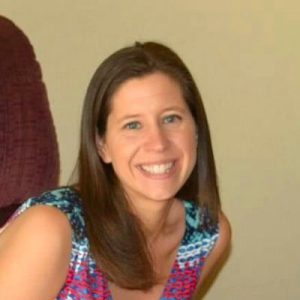
Karly Moura is a teacher on special assignment (TOSA) and Computer Science teacher in the Mount Diablo USD in Concord, California. Karly is also part of team Ditchbook, enjoying her role as content and social media manager.
Twitter: https://twitter.com/karlymoura
Instructor: Nancy Marroquin
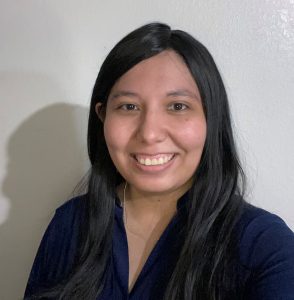 Nancy Marroquin is a Google for Education, TESOL, and SPED Certified high school English teacher in the Hidalgo ISD in Hidalgo, Texas. She has taught for 4 years in culturally diverse, bilingual schools. Nancy has previously presented at the International Teach English Now! Conference at Arizona State University in 2017 and 2019, on the topics of multiple language acquisition and the benefits of play in the classroom. She is a firm believer in making learning fun for both students and teachers and loves incorporating gaming into her lessons.
Nancy Marroquin is a Google for Education, TESOL, and SPED Certified high school English teacher in the Hidalgo ISD in Hidalgo, Texas. She has taught for 4 years in culturally diverse, bilingual schools. Nancy has previously presented at the International Teach English Now! Conference at Arizona State University in 2017 and 2019, on the topics of multiple language acquisition and the benefits of play in the classroom. She is a firm believer in making learning fun for both students and teachers and loves incorporating gaming into her lessons.
Speaker: Nicole Kang
 Nicole Kang is the co-founder and educational lead for Elementari. She is a first generation college student and MIT alum with a passion for promoting both literacy and computational thinking (coding). Previously, she was a STEM teacher educational researcher.
Nicole Kang is the co-founder and educational lead for Elementari. She is a first generation college student and MIT alum with a passion for promoting both literacy and computational thinking (coding). Previously, she was a STEM teacher educational researcher.
Not everyone is an artist, but everyone can sketchnote! Visual note taking has been sweeping the education world with beautiful visuals and bright colors but not all of us feel confident enough in our artistic skills to take on this new adventure. During the session, participants will explore some simple ways to get started with sketchnoting. They will learn why sketchnoting is so effective for our students and our staff. Participants will get hands on experience in getting started with sketchnoting and how they can guide their students in getting started as well. We will explore the possibilities of digital sketchnoting for students and how this can be different than paper and pencil.
Instructor: Heather Marrs

Heather Marrs is an Instructional Coach at Eagle Rock Elementary in Eagle Point, Oregon. She is an Apple Distinguished Educator, Seesaw Ambassador, Book Creator Ambassador and FlipGrid Ambassador. Heather is passionate about integrating technology in education to amplify student voice, increase communication, and engage students. She has been a presenter at ISTE 2019, NCCE 2016-19, the Southern Oregon EdTech Summit 2015-18, and IntegratED 2017-18. Heather is the founder and main moderator of the Oregon EdChat which can be found at #OrEdChat on Twitter. She enjoys being a connected educator and providing professional development both locally and regionally. Outside of teaching, she is a wife and mother of two amazing kiddos.


